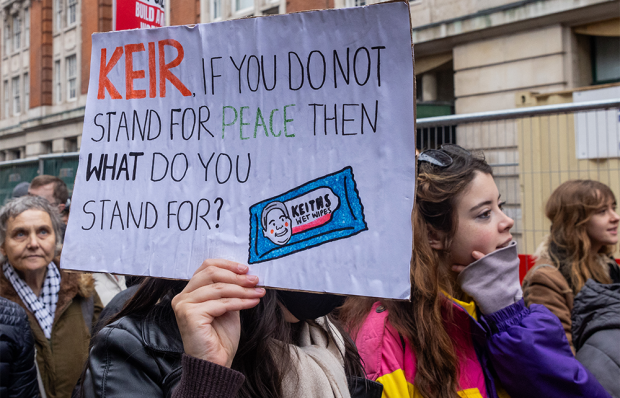A friend of mine was recently doing business with the Qataris. Nothing strange there: a lot of people have in recent years. But of course Qatar is one of the main funders – and the main international host – of the terrorist group Hamas.
The Gulf state has form in the area. In the decade before the Taliban seized back – or were gifted – Afghanistan, they had a lovely office in the safety of Qatar. Because while the Qataris would hate an Afghan situation in their own fiefdom, they are happy to play the role of supporting such extremists elsewhere.
In any case, for more than a decade, Qatar has played host to Hamas, allowing it to operate out of Doha. The Qataris have given sanctuary to (among others) Hamas leaders Ismail Haniyeh and Khaled Meshaal. These men do not share the suffering of the people they claim to care about – the Arabs in Gaza. They make sure that these people get as little of the international aid money that comes their way as possible. Poverty-stricken Palestinians are what Haniyeh and Meshaal need: it bolsters their international begging-bowl abilities. Which in turn bolsters their own bank accounts. For of course there is a reason why people in Gaza are poor. What happened to all that international aid money that countries like ours have handed over since Israel withdrew in 2005? Not mismanagement, that’s for sure. Hamas isn’t the NHS. The Hamas leadership engages in corruption on the grandest of scales. Which means that while Hamas doesn’t provide for the people in Gaza, its leaders can afford to live in great luxury in Doha among other places.
Anyhow, as I was saying, a friend was recently doing business with Qataris. And then 7 October happened. It wasn’t that my friend was naive or ignorant before. It is just that the smell of sulphur around the Qataris was covered up somewhat by expensive scent. It is the same thing that did so much to persuade Fifa to ignore the Gulf kingdom’s system of serfdom and slavery and made the usually noisy claque of footballer-cum-ethicists keep quiet during the last World Cup.
But after 7 October the Qataris no longer smelt of their expensive fragrances. They stank of death. Specifically they stank – and stink still – from harbouring the Hamas leadership during the massacre of 1,400 Israelis. A reek that all the perfumes of Arabia could not sweeten.
One question now is what to do about this. And it is not an easy question to answer. The obvious thing to do is to start to divest from Qatar in the same way that people have divested from Russia in the past couple of years. It would seem a good time to put sanctions on Sheikh Tamim bin Hamad Al Thani, the Emir of Qatar, and his entire family. It would be a good time for the victims of Hamas terror to start to take class-action lawsuits against the Emir, the government of Qatar and any other body involved in business with the statelet.
In the US, these calls are already beginning. With Congressional help, a considerable number of US firms including Affinity Partners, Apollo Global Management, Blackstone, KKR and Pershing Square Capital Management have received letters calling on them to stop future investment with Qatar as a state sponsor of terrorism.
Could similar pressure start to be applied in the UK? Well, it would be a target-rich environment. Because the UK is arguably not just flush with Qatari cash, but deeply, widely compromised by it.
Naturally Qatar’s representatives put on a diplomatic non-terrorist-related front when they speak in London. Appearing at Chatham House last year, the Qatari foreign minister steered conversation towards his country’s role as an energy provider. All of which is much more palatable to your London audience than talk of giving succour to men who decapitate babies and slice open pregnant women’s bellies.
When Boris Johnson was PM, the Emir of Qatar visited Britain and Johnson talked about all the wonderful things we could do together. The Qataris know how to speak to their counterparts. They even told the Financial Times that Qatari investment in the UK would help ‘fintech, sustainability’ and of course – priority of priorities – the ‘great potential’ of making ‘net zero happen’.
The former defence secretary Ben Wallace and home secretary Priti Patel had meetings about expanding the Qatar-UK relationship in the security sector too. The British military already provides training to Qatari forces in Qatar. Because while Qatar does what it can to undermine the region it is in, it is very important that the Qatari citizens are kept safe, along with the many from abroad who serve as courtiers for their feudal masters.
But British divestment from Qatar may be even harder than US divestment. In recent years we have been Qatar’s second-biggest market in Europe. Qatar is the second-largest supplier of liquefied natural gas to the UK. It is the majority investor in various pieces of UK infrastructure, such as the South Hook LNG terminal in Wales. Indeed it is thought that Qatar has around $50 billion of investments here. And not just the glamorous stuff like Harrods and the Shard – other British landmarks old and new are in Qatari hands.
The Qatar Investment Authority last year promised to pump more than £10 billion into the UK economy, with the promise of yet more to come. There also exists a bilateral agreement signed in 2017 to increase collaboration in the healthcare sector between the UK and Qatar.
So when it comes to the UK, two questions arise. The first is whether this country could ever be persuaded to inform the Qataris that the UK does not want to partner with an ugly, corrupt klepto-cracy which funds and hosts a terrorist group. The second question is not whether we can do the right thing but – given how compromised we are – whether we can afford to.
Got something to add? Join the discussion and comment below.
Get 10 issues for just $10
Subscribe to The Spectator Australia today for the next 10 magazine issues, plus full online access, for just $10.
You might disagree with half of it, but you’ll enjoy reading all of it. Try your first month for free, then just $2 a week for the remainder of your first year.















Comments
Don't miss out
Join the conversation with other Spectator Australia readers. Subscribe to leave a comment.
SUBSCRIBEAlready a subscriber? Log in